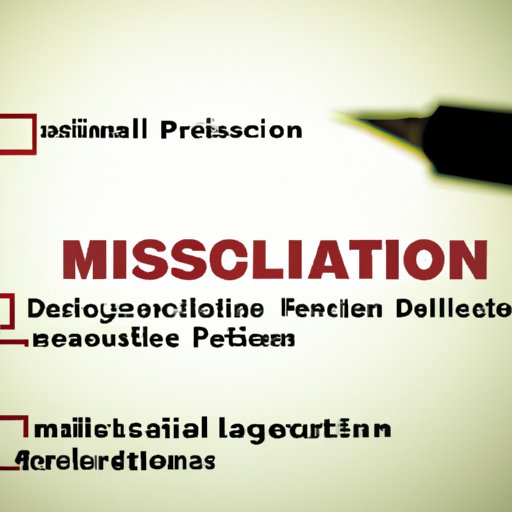Introduction
Medical Science Liaisons (MSLs) are healthcare professionals who serve as a link between pharmaceutical companies and the medical community. They provide scientific and clinical information to medical professionals and organizations, enabling them to make informed decisions about medications and treatments. MSLs also work with researchers to develop research protocols and collaborate with other healthcare professionals in the development of new products and services.

Interview with a Medical Science Liaison
To gain a better understanding of the role of a Medical Science Liaison, we interviewed an experienced professional in the field. According to our source, MSLs must have a deep knowledge of the medical and scientific aspects of their respective fields. This includes understanding both the clinical and scientific evidence behind various treatments and medications.
“A Medical Science Liaison is required to have a thorough understanding of the clinical and scientific aspects of their field,” our source stated. “This means they need to be well-versed in the data and literature related to their particular specialty and be able to interpret that data in order to best serve their clients.”
Our source also explained that becoming an MSL requires a great deal of education and experience. Most MSLs have a PhD or MD in a relevant field, such as pharmacology, medicine, or biology. Additionally, many MSLs have several years of experience working in the pharmaceutical and/or medical device industries.
Benefits and Challenges of Working as a Medical Science Liaison
Working as a Medical Science Liaison has its advantages and drawbacks. One of the primary benefits of this job is the opportunity to stay up to date on the latest developments in the healthcare industry. MSLs are constantly learning about new medications, treatments, and technologies, which allows them to be at the forefront of medical advancements.
In addition, MSLs often get to travel and meet with experts in their field. This provides a great opportunity to network and build relationships with other professionals in the healthcare industry. Furthermore, MSLs can have a positive impact on patient care by providing accurate and reliable information to medical professionals.
However, there can be some drawbacks to the job. For instance, MSLs may face pressure from pharmaceutical companies to present biased information or promote certain products over others. Additionally, MSLs must be comfortable working long hours and dealing with complex and sensitive topics.

Impact of Medical Science Liaisons on the Healthcare Industry
The role of a Medical Science Liaison is essential to the healthcare industry. MSLs can help pharmaceutical companies better understand the needs of physicians and patients, allowing them to develop more effective products and services. MSLs also provide valuable insight into regulatory issues and assist in the development of clinical trials and research protocols.
Furthermore, MSLs play a critical role in advancing patient care. By providing unbiased and accurate information to medical professionals, MSLs can ensure that patients receive the most appropriate treatments for their conditions. This can lead to improved outcomes and a higher quality of life for those receiving care.
Conclusion
Medical Science Liaisons are healthcare professionals who bridge the gap between pharmaceutical companies and the medical community. They provide scientific and clinical information to medical professionals and organizations, enabling them to make informed decisions about medications and treatments. Working as an MSL has both advantages and disadvantages, including the potential for bias and long hours. However, MSLs also have a positive impact on the healthcare industry by helping companies develop better products and services and advancing patient care.
(Note: Is this article not meeting your expectations? Do you have knowledge or insights to share? Unlock new opportunities and expand your reach by joining our authors team. Click Registration to join us and share your expertise with our readers.)
